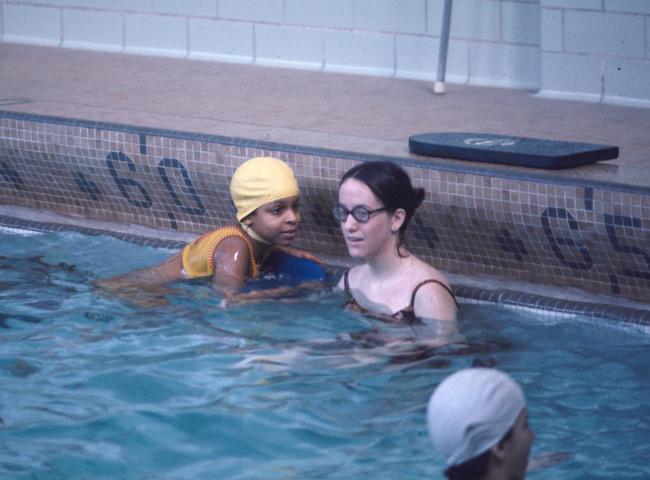
The Ask the Archivist column in the Winter 2022 Rochester Review answered a question from River Campus Library staff, who asked about the history of the the library's annual gift to the Baden Street Settlement. You can read the article here.
Our first professor of Natural History, Chester Dewey (1784-1867) was an honored educator, and according to Arthur May's History of the University, "By reason of his outstanding success as principal and teacher at the Rochester Collegiate Institute, his public lectures on science, and popular articles on scientific topics that peppered the Rochester press, Dewey was a greatly beloved figure in the community."
Martin Brewer Anderson became president in 1853, and quickly became a leading figure. The first scholarships to the University were awarded to students in Rochester city schools at Anderson's urging. With lawyer Lewis Henry Morgan (namesake of Morgan Hall in Susan B. Anthony Residence Hall) and others, he started "The Club" in 1854—a discussion group that still meets today to present papers once a month. His influence was so great and his life at Rochester so long (from 1853 until his death in 1890) that Anderson was remembered by Augustus Hopkins Strong (president of Rochester Theological Seminary) thus: “When I, then a boy, saw him for the first time stride through our streets, I got the impression that he had come to conquer the town….In the vigor of his prime it was difficult to say whether he belonged to Rochester, or Rochester belonged to him.”
In the 1890s, the University began offering non-credit Saturday lecture series to non-students. These Extension Courses were extremely popular with both men and women, and probably fueled the growing interest in coeducation at the University. Members of the Rochester community, along with Susan B. Anthony and Fannie Bigelow, brought that effort to a successful conclusion in 1900 of the long struggle to enable women to enroll on equal footing as the men.
The students of the College for Women in 1933 recorded in the yearbook:
"Much enthusiasm has been shown this year in carrying on work with the children of the Lewis Street and Baden Street Settlements. The girls teach weaving, cooking, and sewing, and assist with parties, hikes into the country, games and stories. Those who are devoting their time to this enterprise are deriving as much benefit as the children." (https://digitalcollections.lib.rochester.edu/ur/croceus-1933)
Read more!
-- about Eastman School of Music Professor Belov's work at Baden Street:
https://digitalcollections.lib.rochester.edu/ur/note-book-rochester-ny-march-31-1924
--about Settlement work at the College for Women in 1932:
https://digitalcollections.lib.rochester.edu/ur/croceus-1933
--Kay Hartman's full article in the Campus Times: Campus Times, October 28, 1958

